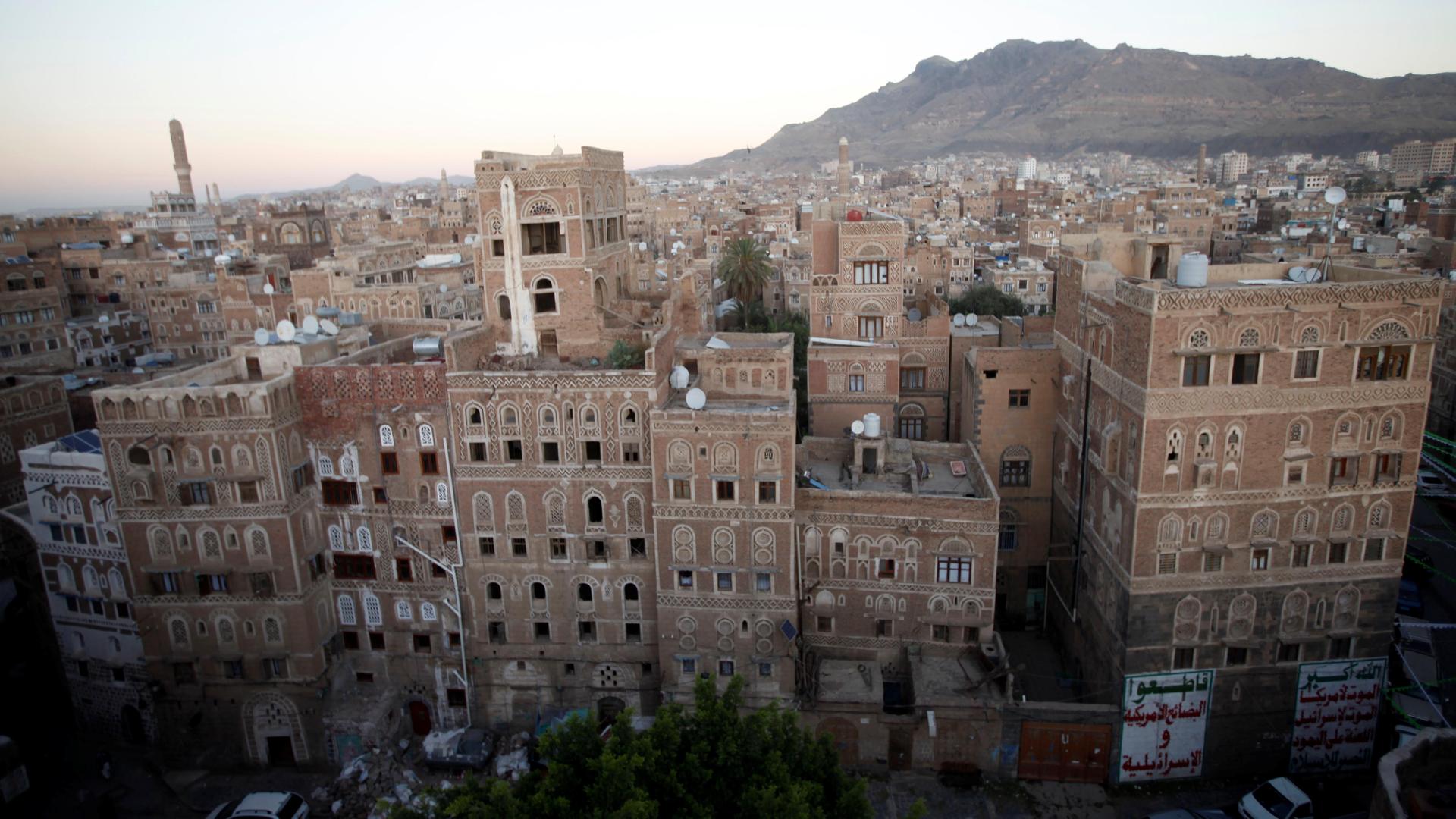Heavy rains that began in July have caused floods that have killed more than a hundred people across Yemen. In the Yemeni capital of Sanaa, floodwaters have coursed through a 2,500-year old-neighborhood, the Old City, which is a UNESCO World Heritage Site.
In more than five years of war, the thousands of mud brick residential towers of the Old City have suffered occasional damage from airstrikes. The distinctive brown and white buildings date back centuries. But according to UNESCO, a larger problem is lack of maintenance. In the economic collapse that has accompanied the Yemen war, Old City residents have not had the resources to repair their roofs, windows and brickwork, leaving their homes particularly vulnerable to weather.
Local authorities say more than a hundred homes have recently seen their roofs partially collapse. Many more are dealing with roof leaks. On August 7, one house partially collapsed, and a family was forced to flee.
Architect Anna Paolini, director of UNESCO’s office in Doha, Qatar, told The World’s host Marco Werman about the organization’s efforts to protect these homes and their residents.
Related: Yemen faces spread of COVID-19 ‘with no health care system at all’
Marco Werman: Let’s say we’re standing in the Old City of Sanaa and looking up — what does one of these towers look like from the outside?
Anna Paolini: Well, they are very tall buildings. You know, these houses are five, six, seven stories high. And this beautiful decoration on the facade, done with this special lime [plaster] that is called qadad that decorate the windows. So the lower stories, they are without windows or with small windows for ventilation so people could not be seen, so that the house maintained also a certain intimacy, I would say. And then the houses, and especially on the last floor where you have the public space, where you receive your guests. And it has all these beautiful light; windows very well-decorated with this white finish from the outside. And originally, they had also colored glass.
These are homes for Yemenis. I know some people had to leave because their homes were damaged. But what is life like in these buildings?
The house develops, as I said, in vertical. So you have the lower floor: storage, the kitchen and so on. And two or three rooms per floor where the family or the extended family lives. So, of course, now they have more modern services. The toilets and so on are more modern than the old ones, but still they live in the same way.
I’m guessing there are no elevators. So if you have company over, they have to walk up nine stories if you’re on the top floor.
Absolutely. And not only that, but you are at 2,200 meters high. It’s one of the highest capitals in the world. So it is quite an effort, I would say.
You’re running out of breath by the time you get up to the ninth story.
I would say so. But the inhabitants are used to that.
I’ve been in mud brick structures before, some two stories high. But it’s hard to imagine anything in mud brick taller than that. As an architect, what in your training prepared you to appreciate this construction?
These are the highest buildings in mud brick in the world. The fact that they are one adjacent to the others, of course, helps with the height. But they are all individual houses with different plans and layout, built around a staircase — a stone staircase that goes from the lower floor to the upper floor. And the rooms open around this staircase. So people move all the time from one floor to another and some floors are dedicated to the kitchen, some other to women. And as you move up, you know, there are more open space and the public space for the house and the community.
So who’s repairing the buildings now? What’s it going to take to maintain them going forward?
Well, we have started a large project which is aimed at employing youth. We have now on the payroll 2,500 youth. We are aiming at reaching 4,000 youth — of which a good percentage are women as well — to provide restoration and maintenance, to maintain roofing and shelters, to make sure that these families do not get displaced and actually continue to live in the building where they have lived for many decades, if not centuries, as a family. And so maintaining their own family, but at the same time, to learn from the master builder how to make maintenance and restore this building.
It seems like a really smart scheme. And I gather those young workers are getting paid in cash in a country where fighting as soldiers has been some of the only work recently.
Yes.
This interview has been edited and condensed for clarity.
